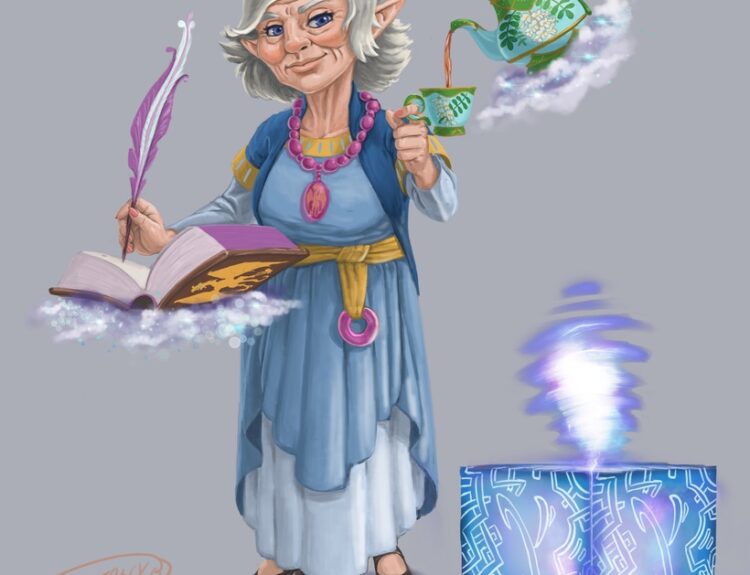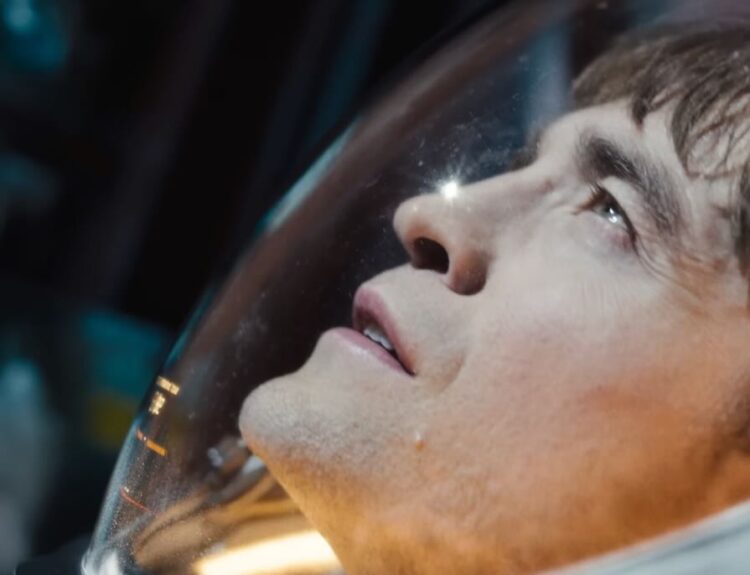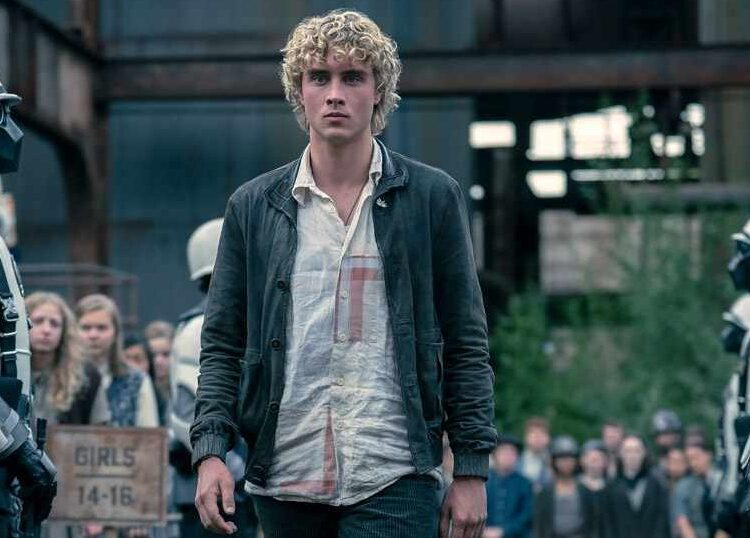Doctor Who has long been my favorite show, but it’s been a couple of years since I’ve actually watched anything but the newest episodes. Before that, I was making a respectable run at getting through the original series, most of which I haven’t seen for decades. For various reasons, it feels like time to get back into it.
Terminus
Starring Peter Davison as the Fifth Doctor.
Companions: Sarah Sutton as Nyssa, Janet Fielding as Tegan Jovanka, and Mark Strickson as Turlough.
Special Guest Stars: Valentine Dyall as the Black Guardian
Written by Steve Gallagher. Directed by Mary Ridge. Produced by John Nathan-Turner. Script edited by Eric Saward.
Format: 4 episodes, each about 25 minutes long.
Originally Aired: February 1983 (episodes 13-16 of Season 20)
Generally, if you look at people’s rankings of stories from the Fifth Doctor, Terminus winds up pretty low. Some even put it at the very bottom. Nonetheless, it’s an important story, in that it’s the middle segment of the so-called “Black Guardian” story, and it’s the serial in which Sarah Sutton’s Nyssa departs the series. Is it really as bad as all that? I resolved to find out!

Spoilers Ahead!
The answer? Well, yes, it’s pretty weak. The worst Peter Davison’s story? I wouldn’t say that. It’s not as bad as Warriors of the Deep, and I haven’t even rewatched Time-Flight yet. The biggest problem, as others have said before me, is that it’s dull and flat, with a lot of high-minded ideas hampered by lacklustre execution and poor story pacing.
Actually, things start off pretty promising. We start on the TARDIS, where we see what life is like for people as Turlough finds his place amongst the crew. In a nice callback, Turlough is given Adric’s old room, which he doesn’t like. Attentive viewers will notice all sorts of easter eggs around the room–different items from Adric’s time on the ship. But nicely, Turlough is dismissive of it all, calling it a “kid’s room.” It’s a nice scene that adds an effective bit of a realism to the dynamic.

And then, it turns out to be Turlough’s ongoing connection to the Black Guardian which propels the characters into the story proper. The Black Guardian is an old foe of the Doctor who had returned in the previous story, Mawdryn Undead, and secretly recruited Turlough to kill the Doctor for him. His efforts to follow through on his mission causes the TARDIS to crash land, basically, into the passenger liner where the plot really gets underway. I was impressed to see these disparate threads integrated so well in an effective piece of writing that picks up on what had come before and gets the story to where it needs to go.
And that place is potentially interesting. We have a space-leper colony ship run by a heartless company that doesn’t want to admit it actually has no idea how to cure the disease it claims to address. We’ve got enslaved guards who are dependent on the relief that comes through irregular shipments of medicine (and it’s stated that the latest shipment is both diminished in quantity and also watered down). These guards have a tense relationship with an alien being called the Garm, who alone amongst them can survive the intense levels of radiation that are required for the “treatment”.

And to top it all off, that station is at the centre of the known universe, and is actually responsible for creating the universe, when some of its fuel was dumped and sent back in time!
All right, I’m kidding. That really is a plot point in Terminus, but it’s not interesting or potentially interesting–it’s daft. Daft and unnecessary.
What is it supposed to mean? The whole universe is an ontological paradox? The characters talk about the science of such an explosion causing the Big Bang, but nobody brings up any wonder over the time travel mechanics. Apparently the novelisation reveals that the Terminus station came from another universe, but that’s not much help. There was another universe where life and spaceships developed identically to our own, and when their fuel exploded, it created our universe…is that it?

Anyway, the critical issue isn’t the nonsensical science, it’s how disconnected we in the audience feel to the whole thing. The fact that Terminus’ explosion represents a universal threat doesn’t make it feel any more significant then if it was just a plain ol’ regular explosion. They are both equally lethal to the only characters that matter for this story, and going on about the universe being endangered just disconnects us from the drama rather than pulling us into it.
This might not have been a big problem if the story was working otherwise, but with Terminus, it’s not. After that promising start that I mentioned, things go downhill pretty steeply. For one thing, there is the dullness of the design, which I referenced and is often cited as one of the big problems. Most of the look of the serial’s world-building is functional enough, but uninspiring. The various settings of the passenger liner, the inhabited part of Terminus and the so-called “forbidden zone” all look pretty much the same, so nothing stands out. The guards’ uniforms are clunky, the space pirates’ helmets are bizarrely large, and the alien Garm is strangely comical–quite literally just a big guy with a dog head.
The guest cast have each got small doses of personality, but not enough to support the story (space pirate Olvir probably has the most going on, whilst Peter Benson’s Bor is brought to life with the most lively performance).

The direction is also pretty clunky, especially whenever things are supposed to be getting action-packed. There is a somber, funereal tone to everything (ironic since it’s one of the rare stories in which nobody dies) which is consistent with the direction of the script, but it’s not brought to life with the skill or excellence needed to make it in almost any way compelling.
Terminus has got a lot of big ideas that it wants to bring up, but in many ways it feels hugely underwritten. The plight of the slaves and the diseased should have been at the story’s heart, but it gets crowded out by so much other material, all of which is poorly developed. You’ve got the TARDIS blended in with the ship for some reason that is never explored (is the Chameleon Circuit suddenly working?), you’ve got space pirates who are suddenly abandoned for reasons that are never explained, you’ve got the alien Garm whose role on the station is never developed, and you have that whole universal threat thing that I mentioned, seemingly because the script wasn’t confident that it already had enough going on to feel significant.
And of course, you have the ongoing subplot between the Black Guardian and Turlough.

This story is often referred to (including by myself) as the middle chapter of the Black Guardian trilogy. And this is literally true–there are three stories in the arc, and this one comes after it starts and before it ends. But it’s really only part of the trilogy in the barest functional way. Nothing about arc actually builds here (the main role of the middle of a story, one imagines). Once Turlough’s sabotage gets the TARDIS to where it needs to be, the plot point just plods along, repetitively covering the same ground, but not developing anything, or showing us anything new.
I’ve read in where people have complained about the same thing by saying that Tegan and Turlough are barely in this story, spending much of it lost in a tunnel, etc. But that’s not quite accurate–actually, if it was, it might not have been so bad. The problem is that Tegan and Turlough are still in the story a lot, they just barely interact with the rest of the characters or plot. We cut back to them far too often, and every time it drags whatever momentum the story had to a halt (except for that time they nearly destroy the universe, there is that). It probably would have been better if they had just stayed in the TARDIS until halfway through the last episode. That would have made calling it “the middle chapter of a trilogy” even sillier, but at least it might have given he rest of the story a chance to get somewhere.

There are two other things to mention about Terminus, both of which are about Nyssa, the companion for whom this is the final story. The first is about the blatant fan-service that is done with her wardrobe, where she spends a good chunk of the story basically wearing just underwear. She randomly removes her skirt in the second episode, presumably because she’s feverish, but it’s almost impossible to justify (maybe if she’d removed a jacket or some other top-layer, you could imagine it was because she was sweating). But even before that, she’s already wearing only a frilly top that was under the upper half of her outfit from the previous story. In any case, it’s still a family show so her clothing isn’t too sexualized by modern standards, but it’s so utterly ridiculous that it costs the story a lot of whatever credibility it had at that point. They try to make up for it by putting Sarah Sutton into a burlap sack in the third episode, but by the fourth she’s back to her skivvies, so you can see the effort was half-hearted.
The last thing to mention is actually something positive, which is Nyssa’s farewell scene.

It’s really good. She gets a dignified exit, both in terms of her reasons for leaving (recognising that there is a way she can help) and also in terms of her actual interactions with Tegan and the Doctor. I like the way Tegan objects to Nyssa’s decision, and I like the evident concern and disappointment from the Doctor. Similar to the story’s early material on the TARDIS, it’s well-directed and well-performed, and does a good job making these characters feel real and relatable. Sarah Sutton, Janet Fielding and Peter Davison all do a good job bringing to life everyone’s sadness (it’s fitting that Turlough isn’t around for the scene–his presence would just be distracting at this point). It’s just too bad the rest of the serial wasn’t as good.
Now, it’s well-known that the behind-the-scenes production process of Terminus was fraught with difficulties. So many things went wrong that it’s almost comical to read about it–a set was built wrong, miscommunication led to problems with props, an adjustment to the script wasn’t done as intended, electrical problems led to delays in shooting and industrial action threw the schedule out of whack. As a result, the serial was rushed in many ways and maybe it’s a bit of a miracle that we can enjoy it at all. I am glad, of course, that it was completed–if nothing else having Nyssa disappear between stories would have been jarring!

But even if you can understand some of the contributing factors to why a show wound up the way it did, you still have to judge it on the basis of what made it to the screen. And in this case, my impression of Terminus is that in spite of some good moments near the start and near the end, the end result is pretty disappointing.
Movie News
Motivation
Anime Batch
Ekspedisi Papua
Jasa Import China
Berita Olahraga



